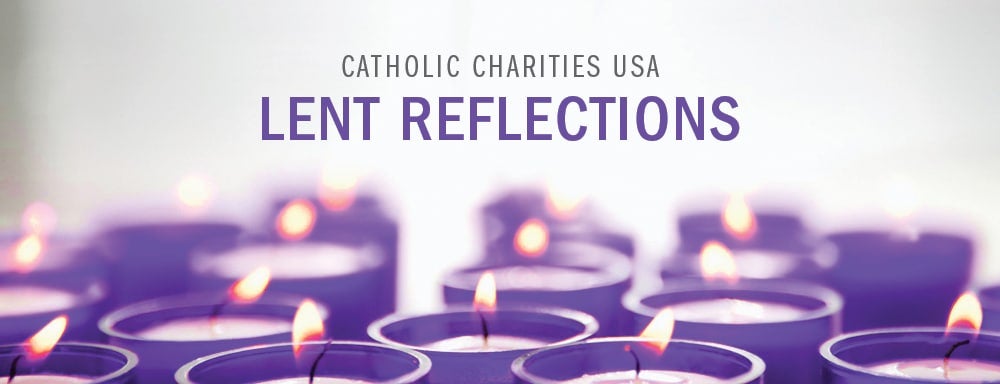Holy Saturday, 2023

“Dear brothers and sisters, on this most sacred night, in which our Lord Jesus passed over from death to life, the Church calls upon her sons and daughters, scattered throughout the world, to come together to watch and pray. If we keep the memorial of the Lord’s paschal solemnity in this way, listening to his word and celebrating his mysteries, then we shall have the sure hope of sharing his triumph over death and living with him in God.”
So begins the solemn blessing of the Easter Vigil. If you have never experienced this liturgy, consider doing so this year!
Of this magnificent liturgy’s many symbols and rituals, the baptismal liturgy is especially significant for social ministers. The baptismal font and waters are blessed; new Christians are baptized and confirmed; baptismal vows are renewed; and the entire assembly is blessed with the baptismal water.
The Vigil’s baptismal liturgy closes with this prayer: “And may almighty God, the Father of our Lord Jesus Christ, who has given us new birth by water and the Holy Spirit and bestowed on us forgiveness of our sins, keep us by his grace, in Christ Jesus our Lord, for eternal life.”
And how many times are we bearers of new water to suffering victims? In 2016, a poisoned water crisis in Flint, Michigan came to a head. Michigan Governor Rick Snyder declared a state of emergency in Genesee County, of which Flint is the major population center. Shortly thereafter, President Barack Obama declared a federal state of emergency. Between 6,000 and 12,000 children were exposed to drinking water with high levels of lead. As a parish minister that year, I transferred newly blessed baptismal water from one worship site of our parish (which hosted the Vigil that year) to our two other worship sites. And I prayed for our Michigan neighbors who did not have safe, life-giving water.
Many of us assist or have assisted disaster response efforts, often providing life-giving water. This Easter — as we experience the Vigil’s blessing of baptismal water and many sprinkling rites during the season — may we be ever mindful of our neighbors who lack this life-saving element for cooking, washing and drinking, while supporting our colleagues on the ground who provide this life-giving element.
Steve Herro is a Norbertine brother of St. Norbert Abbey, De Pere, Wisc. A past staff member of CCUSA, he presently serves the Church as a trained spiritual director, archivist, blogger, small group facilitator and volunteer for local charitable agencies.